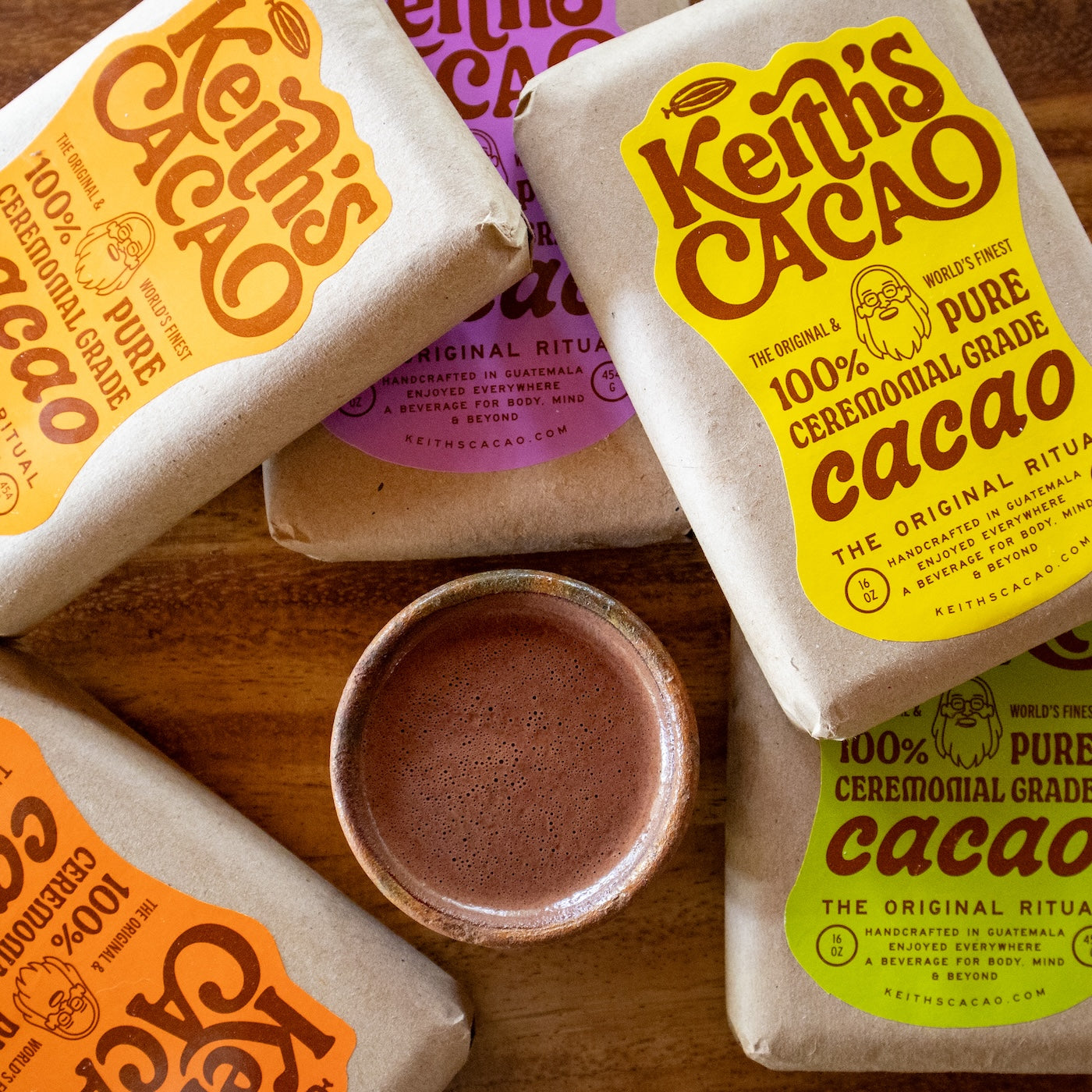Cacao benefits | Cacao health | Cacao pregnancy | Ceremonial cacao | Keith's original writings | Keith's wisdom
Cacao Mothers and Babies
This blog post is an extract from the original writings of Keith Wilson, the Chocolate Shaman.
A lot of the information and knowledge I have on the subject of Cacao, mothers, and babies comes from the local gringo midwives who work with the indigenous midwives and what they have told me of traditional uses of Cacao. Also, over the years, many pregnant, breastfeeding women and young mothers have asked me about Cacao use, and I have asked the Cacao Spirit for guidance. Along the way, several MDs and a metabolic researcher-biochemist have added to my understanding. And, of course, there have been several 'Cacao moms' who have contributed to this body of knowledge. Some moms and kids are pretty psychically or intuitively aware!
So here is what I know. Most babies, breastfeeding or still in the womb, do very well with mom taking Cacao. We know of several awesome 'Cacao children.' The recommended dose for pregnant women is about 1oz (28g - ⅔ of a ceremonial dose) in the first 2 trimesters, about ⅔oz (20g) maximum all-at-once dose in the last trimester.
Of course, a few fetuses and breastfed babies don't like it, but that's not a problem. You will know by their reaction. The best thing is to start easy and find your place with it. I suggest ⅔oz (20g) while breastfeeding until it is clear how the child reacts.
Please be aware that these recommendations are for our Cacao, which is stronger in active compound content than others. Commercial varieties from South America and the rest of the world, common in the raw market, have much more caffeine than the Central American variety we sell [a lot of Cacao here in Guatemala is also loaded with caffeine!]. I do not consider these suitable for the little ones.
Although Cacao is classified as a stimulant, many people, especially those given to meditation or contemplation, go deeper and quieter with our Cacao. This holds true also for most babies who get the effects of Cacao through the mother's milk. Try it and find out for yourself!
In Guatemala, Cacao is an indigenous midwife staple for both women and midwives. It is highly nourishing and energizing after an exhausting, long labor. In the local indigenous community, women drank Cacao, not at ceremonial doses, during pregnancy and in [slightly] larger quantities during labor to ease the way.
It is also used as an effective treatment for post-partum depression. Plus, several women have noticed and reported that Cacao is also great for morning sickness. Many have shared their experience describing deeper peace, love, and connection with Self and little one in the womb.
Of course, medical doctors would blame the Cacao if anyone went into premature labor. If you have no testing skills for dosage on an individual basis, you better stay on the conservative side.
"She was exhausted, and she contacted us the next day to say that she had a total shift in her energy when getting up to nurse the baby at 3AM. She explained feeling love and joy instead of the more unloving emotions she had been experiencing before". - A midwife reporting on a client taking Cacao postpartum.
A Yale study published in Epidemiology, May 2008, claims that: "Chocolate consumption during pregnancy may lower risk of preeclampsia."
According to another study: "The babies born to women who had been eating chocolate daily during pregnancy were more active and "positively reactive" – a measure that encompasses traits such as smiling and laughter." Early Human Development (vol 76, p 139)
The same study found that "The babies of stressed women who had regularly consumed chocolate showed less fear of new situations than babies of stressed women who abstained." Early Human Development (vol 76, p 139. (This study was done in Europe, and so used chocolate with far more active compounds than are in the Hersheys, Mars, or Cadbury-type chocolates, which have less than 1% of the active compounds.)
And this is what an MD had to say, commenting on the study referenced above: "…it must alter the brain neurochemistry and set the baseline neural wiring to a much more favorable experience of reality for the baby, and I guess it incorporates it as its learned expectation of 'reality' from then on."

